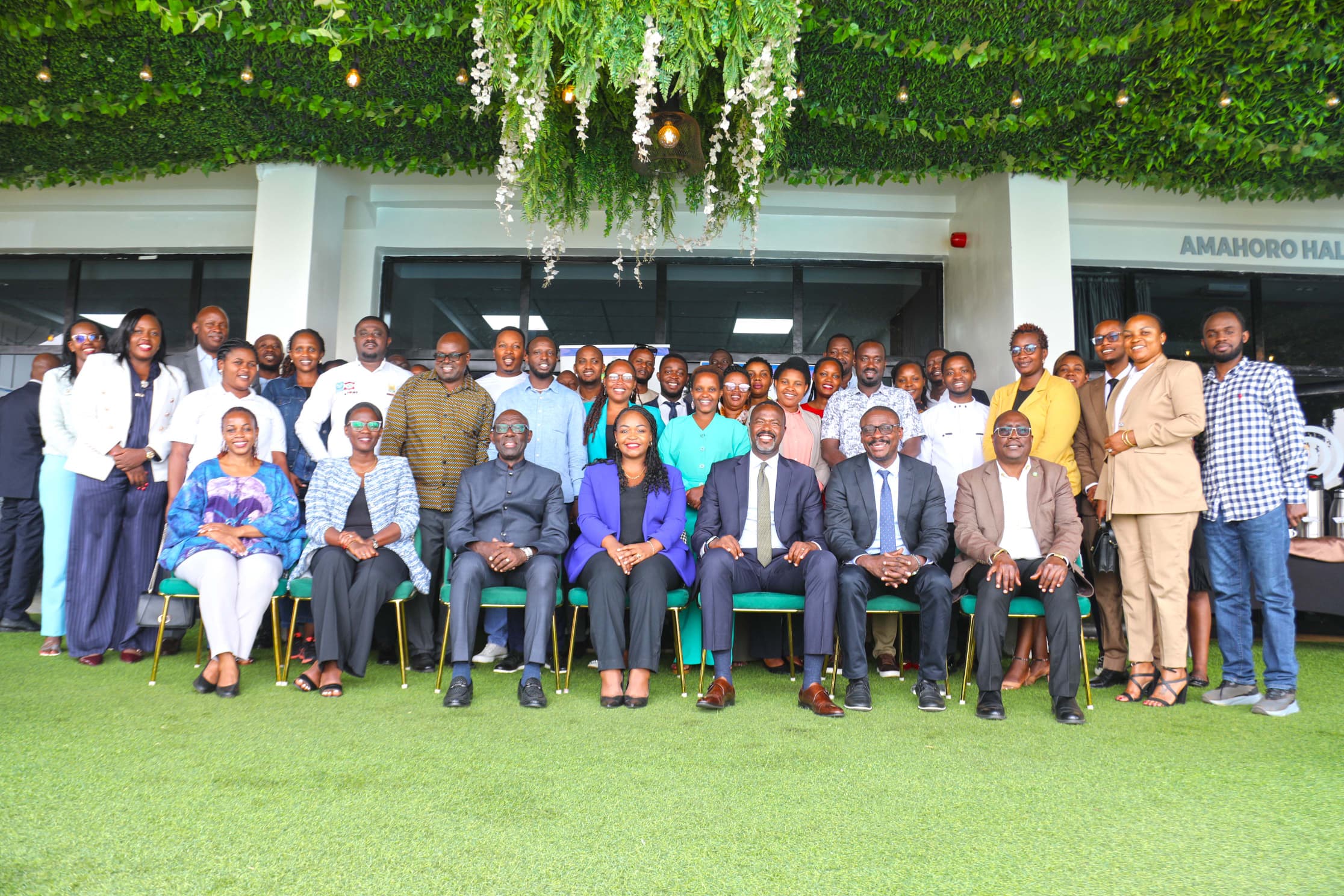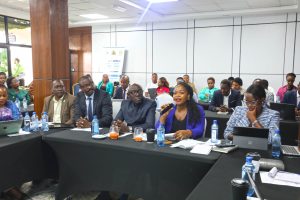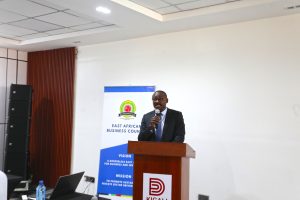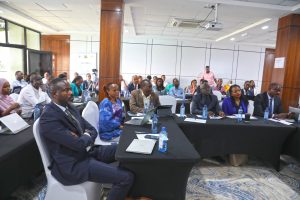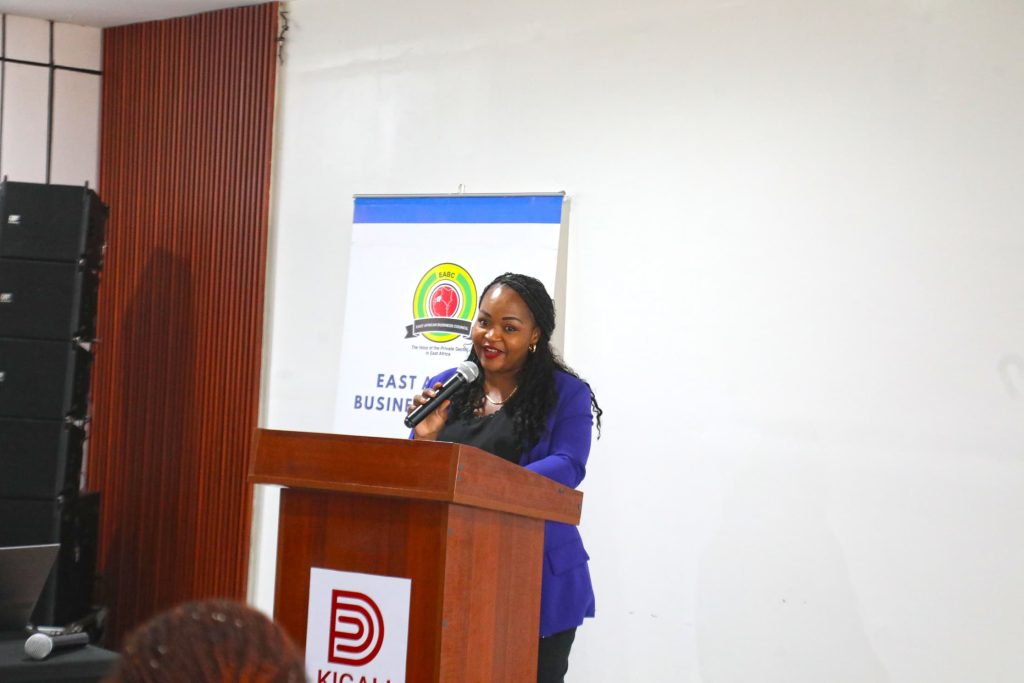 Kigali, Rwanda Monday 11th August 2025 — In her remarks during the official opening of the EABC CEO–EAC Secretariat Consultative Meeting, the Permanent Secretary for the Ministry of Foreign Affairs and International Cooperation of Rwanda, Clementine Mukeka, stated: “The EAC is the most integrated regional economic bloc in Africa and reiterated the Government’s commitment to structured public–private dialogue and finding solutions to boost intra-EAC trade for improved livelihoods of East African people.”
Kigali, Rwanda Monday 11th August 2025 — In her remarks during the official opening of the EABC CEO–EAC Secretariat Consultative Meeting, the Permanent Secretary for the Ministry of Foreign Affairs and International Cooperation of Rwanda, Clementine Mukeka, stated: “The EAC is the most integrated regional economic bloc in Africa and reiterated the Government’s commitment to structured public–private dialogue and finding solutions to boost intra-EAC trade for improved livelihoods of East African people.”
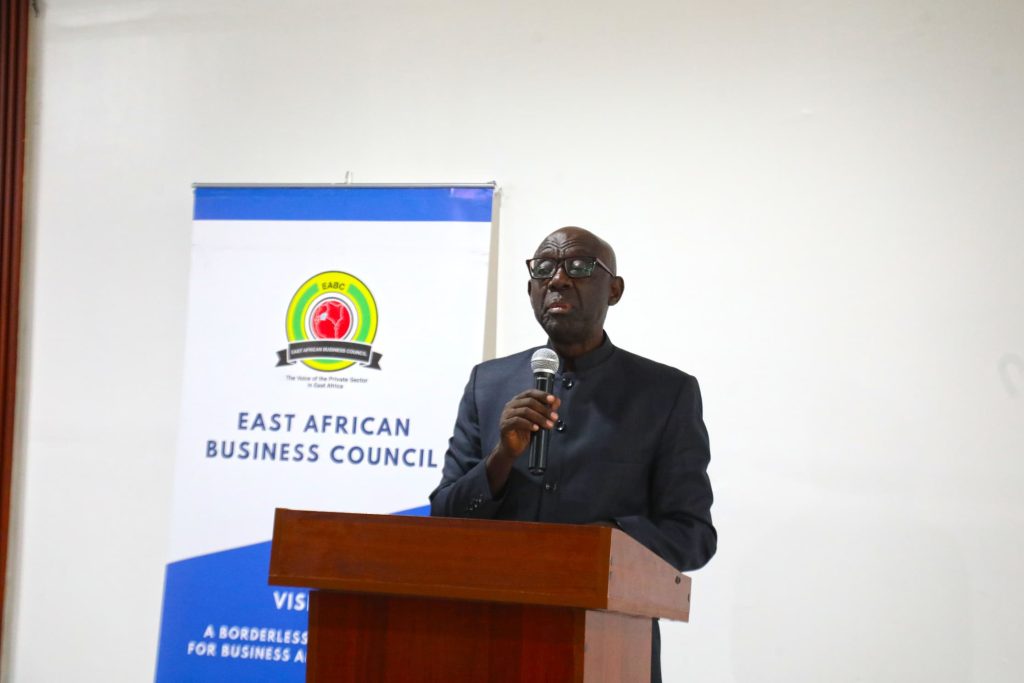 Mr. Dennis Karera, EABC Vice Chairperson, requested that EAC Partner States should fast-track the ratification of the amendment to Article 24(2) of the Customs Union Protocol to establish and operationalize the Committee on Trade Remedies. He noted that the Committee is critical for expeditiously addressing trade disputes, thereby reducing non-tariff barriers (NTBs) and enhance intra-EAC trade.
Mr. Dennis Karera, EABC Vice Chairperson, requested that EAC Partner States should fast-track the ratification of the amendment to Article 24(2) of the Customs Union Protocol to establish and operationalize the Committee on Trade Remedies. He noted that the Committee is critical for expeditiously addressing trade disputes, thereby reducing non-tariff barriers (NTBs) and enhance intra-EAC trade.
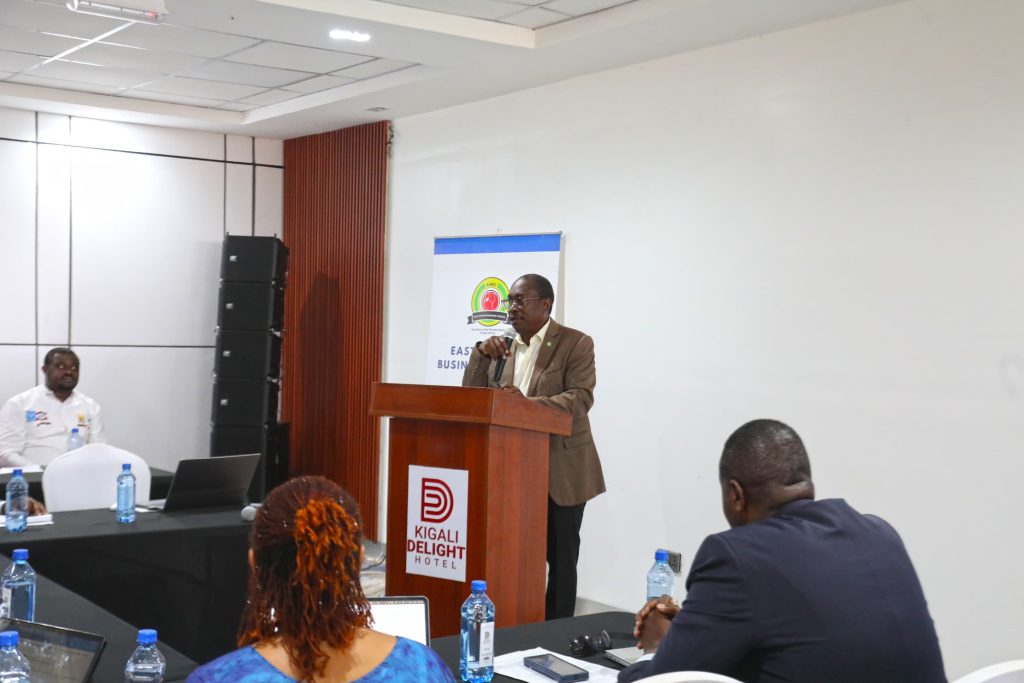 On his part, Mr. Charles Omusana, EAC Principal Economist (Investment & Private Sector Promotion), stated that the EAC integration pillars of the Customs Union and Common Market are cornerstones of development for the socio-economic transformation of East African citizens.
On his part, Mr. Charles Omusana, EAC Principal Economist (Investment & Private Sector Promotion), stated that the EAC integration pillars of the Customs Union and Common Market are cornerstones of development for the socio-economic transformation of East African citizens.
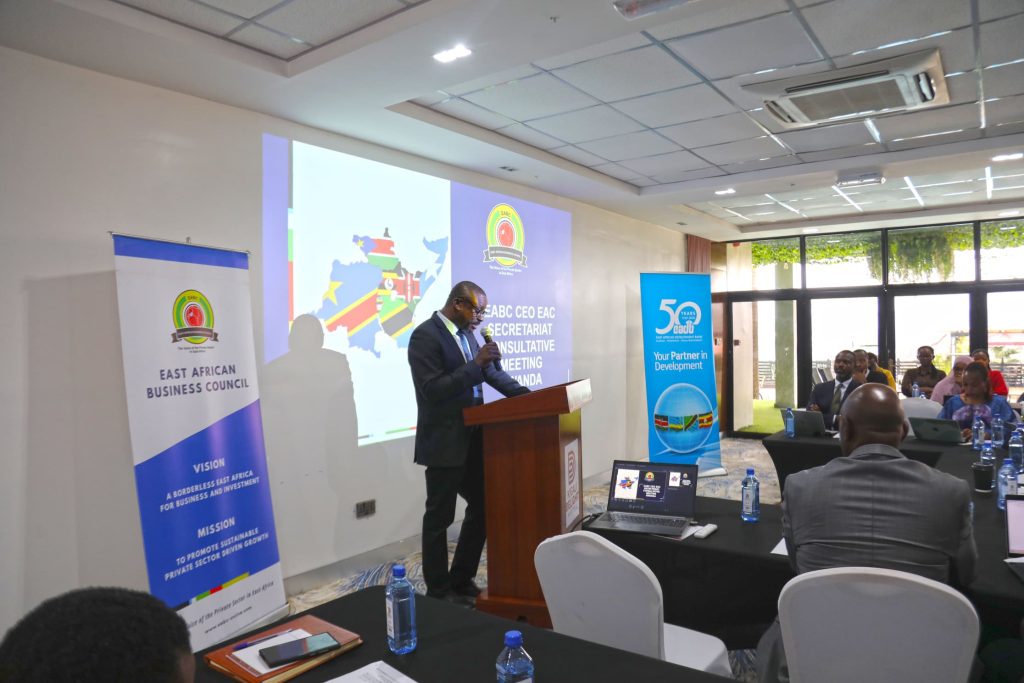 In his remarks, Mr. Adrian Raphael Njau, Acting EABC Executive Director, appreciated the Government of Rwanda for hosting last year’s impactful EABC CEOs engagement with the EAC Secretary General in October. The meeting culminated into the Kigali Declaration, which outlined key issues including the export tax on hides and skins, non-implementation of the container deposit guarantee for land permit-linked consignments, liberalization of EAC air transport services, discriminatory levies on milk transfers from Rwanda to the United Republic of Tanzania (URT) and the high cost of import licenses by the Kenya Dairy Board, stringent chemical permit requirements by Tanzania, non-geofencing of the Holili/Taveta route, high road user charges by Tanzania for Rwandan trucks, and safari vehicle road user charges by Uganda. Following last year’s meeting, the EAC and EABC have resolved the export tax on hides and skins, while the recently launched EAC Bond will address the container deposit guarantee challenge.
In his remarks, Mr. Adrian Raphael Njau, Acting EABC Executive Director, appreciated the Government of Rwanda for hosting last year’s impactful EABC CEOs engagement with the EAC Secretary General in October. The meeting culminated into the Kigali Declaration, which outlined key issues including the export tax on hides and skins, non-implementation of the container deposit guarantee for land permit-linked consignments, liberalization of EAC air transport services, discriminatory levies on milk transfers from Rwanda to the United Republic of Tanzania (URT) and the high cost of import licenses by the Kenya Dairy Board, stringent chemical permit requirements by Tanzania, non-geofencing of the Holili/Taveta route, high road user charges by Tanzania for Rwandan trucks, and safari vehicle road user charges by Uganda. Following last year’s meeting, the EAC and EABC have resolved the export tax on hides and skins, while the recently launched EAC Bond will address the container deposit guarantee challenge.
Mr. Njau called for the full implementation of the EAC Single Customs Territory (SCT) frameworks and the uniform application of the Common External Tariff (CET) by all EAC Partner States.
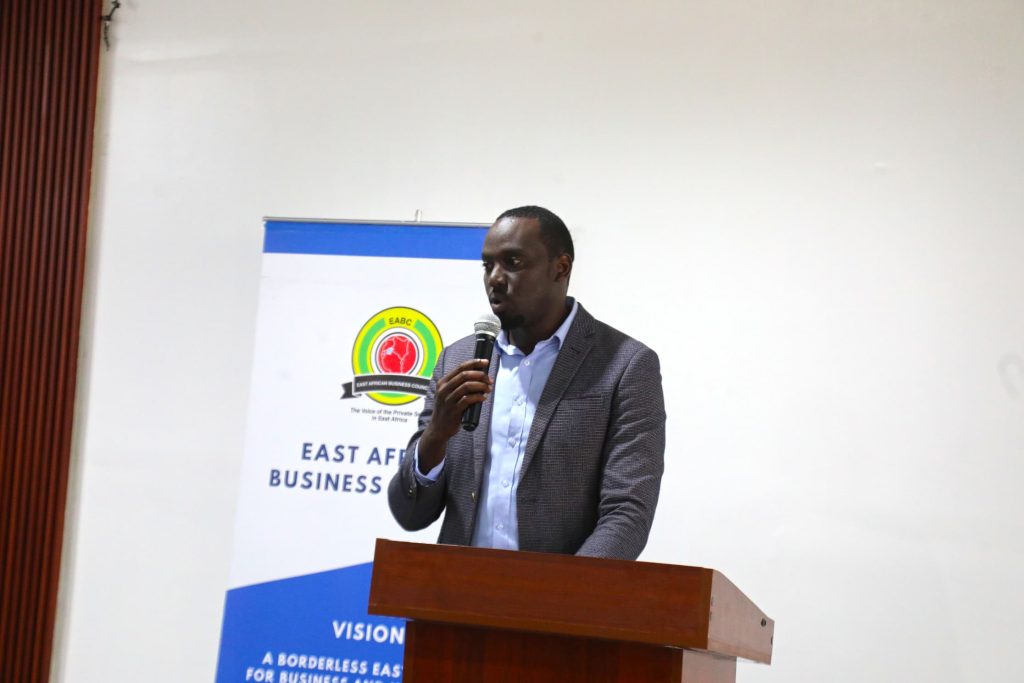 Mr. Didace Mparirwa, Head of Agriculture and Livestock Cluster , Private Sector Federation (PSF) said the EABC CEO–EAC Secretariat Meeting will come up with proposals to strengthen Rwanda’s trade ties with her EAC counterparts.
Mr. Didace Mparirwa, Head of Agriculture and Livestock Cluster , Private Sector Federation (PSF) said the EABC CEO–EAC Secretariat Meeting will come up with proposals to strengthen Rwanda’s trade ties with her EAC counterparts.
The two-day meeting has convened 55 representatives from Rwanda’s public and private sectors to discuss solutions to barriers to trade and investment, with the aim of boosting the uptake of regional integration opportunities. Key policy issues under discussion include expediting the harmonization of domestic taxes—such as excise duties, VAT, income tax, and export taxes—along with the ratification of the EAC Agreement on the Avoidance of Double Taxation; eliminating all discriminatory taxes (excise duties, VAT), other charges of equivalent effect, levies, and fees on EAC-originating goods; stopping the practice of treating EAC-originating goods traded within the region as imports or exports and instead recognizing them as transfers to be treated the same as like domestic goods in terms of fiscal measures, charges, fees, and levies; and finalizing the process to amend the Non-Tariff Barriers (NTB) Act and its regulations. Rwanda business leaders from agriculture & horticulture, manufacturing, and services—including tourism, financial services, and logistics will present on sectoral challenges and opportunities in cross border trade and investment.

